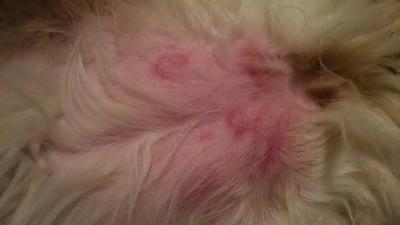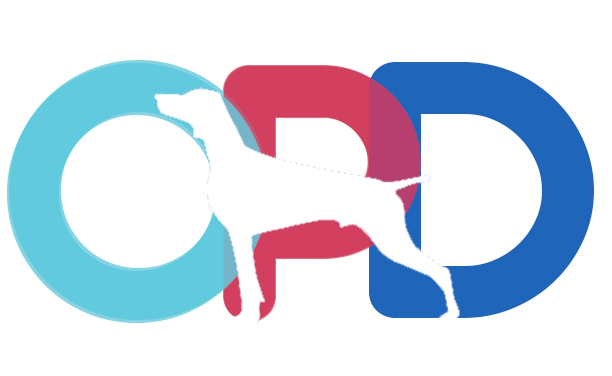by Joy
(California)

My 8 year old Red Merle Border Collie has recently developed several red patches or spots on her abdomen. They have been there for two weeks but I have never seen them on her before. She has not lost any fur, there does not seem to be any itching. I have not seen her licking or grooming this area at all.
I am including two pictures, the spots are red, and there is a scab in the center. They fade and then come back but have not become any worse within the two weeks I have noticed them.
At first I thought it was a reaction to a new dog treat she had been eating but after eliminating this from her diet she still had the spots. She has been eating the same kibble and has not come into contact with any chemicals or other irritants to my knowledge. She is exclusively indoors.
Thank you!
Comments for Border Collie with Red Spots on Belly | ||
| ||
Click here to go back to the Ask a Vet Online Library of questions.
Do you believe in holistic pet care? If so, please tell your friends about us. Thank you for supporting our efforts!
Also see…
- Back to Dog Health Problems Symptoms / Dog Illness Signs Symptoms / Natural Dog Remedies
- Back to 10 Best Dog Food Options / Dog Food Ratings / Buy Dog Food Online
- Back to Conventional vs. Holistic Veterinarians
- Back to Organic Dog Supplies Online
- Back to Pet Friendly Airlines / Pet Friendly Travel
- Back to Organic Pet Digest Natural Dog Care Home Page

